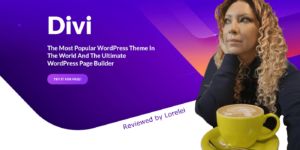Biographies do more than tell life stories. They open windows into the minds that shaped history culture science and art. Reading about great thinkers is like borrowing their lens to look at the world. And when those stories are available in digital form the barrier to access melts away.
E-biographies bring giants of thought to phones and tablets making it easier to dip into genius while commuting waiting in line or taking a break. Z library helps bring together useful materials for readers offering a rich selection of life stories that span centuries and continents. Whether it’s a revolutionary scientist or a boundary-pushing artist digital libraries make sure the past keeps talking to the present.
The Minds Behind Movements
Every movement begins with a mind that refuses to sit still. Thinkers who challenged norms often paid a price but also planted seeds for future generations. Biographies of these figures give context to big ideas and help explain why they mattered then and now.
Reading about Malcolm X for example offers insight into activism personal transformation and social justice. His autobiography tells more than history—it speaks to identity and conviction. Simone de Beauvoir’s life story shows how philosophy and feminism can intersect with personal struggles love and choices. When these tales are just a click away the weight of their ideas feels lighter to carry.
Unexpected Lessons from Familiar Names
Some thinkers are household names yet their inner worlds remain unknown until their stories unfold on the page. Biographies reveal flaws contradictions and doubts that humanize even the most admired minds.
Einstein was not always taken seriously and Darwin sat on his theory for years before publishing. These details are not just trivia—they reshape how progress is understood. By reading how ideas were born stumbled and grew readers gain more than admiration. They learn patience risk and resilience. And when those stories are accessible from an e-library they’re no longer hidden in dusty corners.
From the pages of these books come lessons that stick to the ribs. And some stand out as particularly powerful:
- “The Autobiography of Benjamin Franklin”
Franklin’s wit work ethic and hunger for knowledge shine through in this self-penned account. He writes with a mix of humility and pride blending personal growth with public service. The book reads like a how-to guide on living with intention and curiosity. Franklin’s daily schedule his approach to self-improvement and his views on virtue make the book a blend of memoir and manual. It doesn’t feel preachy. Instead it’s charming and oddly modern. Every chapter brings out the tinkerer the diplomat the printer and the philosopher in him. It’s no wonder this remains a favorite for those who value both reason and reinvention.
- “Steve Jobs” by Walter Isaacson
This authorized biography peels back the curtain on Apple’s co-founder showing both the brilliance and the brutality behind his vision. Jobs was a master at connecting art and technology but he was also known for his sharp tongue and high demands. Isaacson captures the tension between those extremes without glorifying or condemning. He dives into product launches personal failures and creative battles. The book also explores how Jobs saw the world differently and how that vision changed entire industries. For anyone curious about the messy intersection of genius and obsession this biography delivers in spades.
- “Marie Curie: A Life” by Susan Quinn
Quinn presents Curie not just as a scientist but as a woman who faced heartbreak war and fierce resistance. The book explores Curie’s partnerships love letters and grief while highlighting her groundbreaking research. She was the first woman to win a Nobel Prize and the only person to win in two scientific fields. Yet her personal story often gets lost behind her lab work. This biography brings balance showing a life that burned brightly both inside and outside the lab. It’s a reminder that devotion to science often walks hand in hand with personal sacrifice.
Each of these biographies brings something rare to the table. They connect the mind to the heart and theory to experience.
The Lives That Still Whisper
What makes a biography timeless isn’t just the fame of the subject. It’s the way their struggles still echo. Reading about Nietzsche’s solitude or Maya Angelou’s early years feels strangely close to home. The best biographies are less about timelines and more about feelings fears and flashes of insight.
Digital collections have made it easier to discover lesser-known thinkers too. Stories of Ada Lovelace or Nikola Tesla used to live in footnotes. Now they live on screens and spark new interests across generations. They don’t just teach history—they start conversations across time.
Biography as Compass
In a world of noise stories rooted in reflection still matter. Biographies steady the compass. They show how people chased meaning handled setbacks and shaped their times. That clarity often comes not from their victories but from how they handled the in-between moments.
Reading about thinkers doesn’t promise answers. But it gives something just as valuable—new questions to ask. And sometimes that’s enough to light the way forward.
Data analytics expert. As an analyst and project manager, I have proven to be a strong leader and team player in maintaining a suitable workspace for workers and industries in the oil and gas sector.
By taking into account various factors, with the assistance of state of the art technologies and the utilization of Big Data Analytics.
This includes considering various aspects like volume, velocity, variety, veracity, value together with complexity.
With the recent advent of data recording sensors in exploration, drilling, and production operations, oil and gas industry has become a massive data intensive industry.






